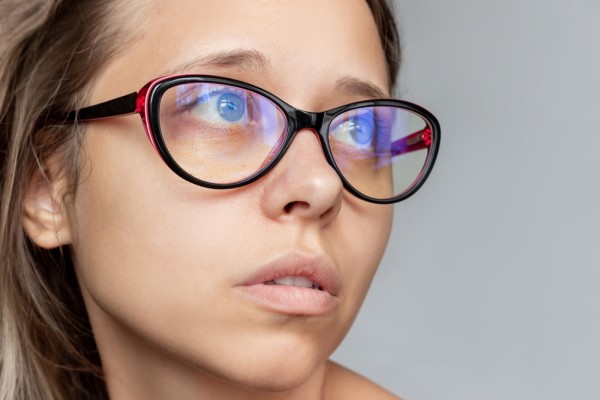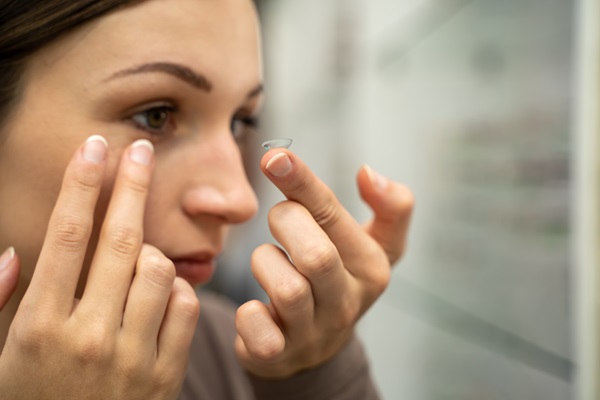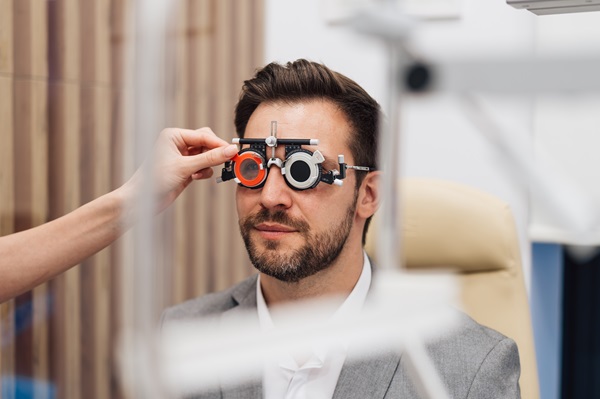How Blue Light Glasses Work

The highest energy form of visible light is blue light. It can often be found in electronic devices. Fortunately, blue light glasses block and protect your eyes from the negative effects of blue light, which is otherwise unavoidable. This article will review everything you need to know about the effects of blue light and how blue light glasses can help prolong your eye health.
How blue light glasses promote eye health
What is blue light?
Blue light is a high-energy visible (HEV) light found in sunlight (seen by the naked eye) and artificial sources, such as phones, tablets, computers, and televisions. It is a form of electromagnetic radiation, like ultraviolet (UV) rays and infrared radiation.
Light is measured in nanometers, and blue light is shorter than other lights standing between 380 and 500 nanometers, making it high energy and dangerous. Blue light is mainly harmful because it offers no health benefits and can cause significant damage to the retina and macula, where most of the cells in the eye are located.
Negative effects of blue light
Blue light can lead to several eye conditions, such as dry eye, eye-straining that lasts for days, blurry vision, early macular degeneration, and an overall decrease in vision quality. In addition, consistent exposure to blue light can cause frequent and prolonged headaches and migraines in some people.
According to a 2016 study from the Molecular Vision Biology and Genetics in Vision Research, blue light also suppresses melatonin production, making it harder for patients to sleep at night. However, they can try to switch off their devices an hour before bedtime can help them get a better night’s sleep. This can also help prevent melatonin suppression caused by blue light exposure.
How do blue light glasses work?
Blue light glasses are a type of eyewear that blocks the blue light emitted by digital devices and UV rays. They are similar to sunglasses in that they have a tinted lens (they may be polarized or non-polarized). However, unlike regular sunglasses, blue light glasses block all wavelengths of visible light except for the ones the patient wants– in this case, blue.
Blue light glasses block the blue light spectrum in two ways. The first way is by using a filter to remove blue light from the patient’s field of vision. The second way is the lenses are tinted with a special coating that blocks blue light.
Benefits of blue light glasses
The benefits of blue light glasses are undeniable. They can help reduce the symptoms of eye strain, such as irritation and burning. This is especially important for people who spend a significant amount of time in front of computer screens or staring at their mobile devices. They can also help promote a patient’s daily performance as well helping them get a restful night’s sleep. In addition, blue light glasses prevent or aid in medical conditions such as macular degeneration, glaucoma, cataracts, and age-related degeneration (ARMD):
- Macular degeneration. A type of age-related eye disease that causes vision loss in older adults diagnosed with it. While it is more common in older adults, it can appear earlier in life if the eyes are unprotected.
- Glaucoma. A disease where the optic nerve becomes damaged. The damage to this nerve can cause vision loss or even blindness.
- Cataracts. An eye condition that can be caused by exposure to too much blue light from sunlight or artificial sources.
- ARMD. An age-related disease that affects central and peripheral vision if not treated promptly.
Additional tips to protect from blue light
Blue light is unavoidable, and while blue light glasses offer a certain level of protection, it is still best to adopt eye-health-friendly habits. Some habits include:
- Turn off the auto-brightness feature on mobile devices; this feature is designed to adjust brightness levels based on ambient light levels
- Increase the contrast on the computer or laptop screens by making black text on a white background as large as possible; this reduces strain on the eyes, making it easier to focus
- Adopt the 20-20-20 rule; when working on a computer all day, patients should look away from their screen after every 20 minutes and focus on an object that is a minimum of 20 feet away from them for at least 20 seconds
- Patients should reduce the amount of LED light exposure
- Do not look directly into any source of light, the sky, or at the sun
Protect your eyes today
If you are feeling the effects of blue light, such as headaches or fatigue, we recommend scheduling an appointment with an optometrist today. Blue light glasses can help your daily performance and help you rest, all without the risk of damaging your eyesight. If the thought of wearing special glasses all day sounds daunting, do not worry. There are many different frames available for you to choose from that can fit your everyday life and personality.
We currently offer blue light glasses in the Dallas area. Visit https://www.texasoptical.net or call our office (214) 771-7333 to schedule an appointment.
Check out what others are saying about our services on Yelp: Read our Yelp reviews.
Recent Posts
A contact lens exam is slightly different from an eyeglass prescription exam. Though both correctives are great for helping you see clearly, contact lenses can be a better fit for certain individuals, such as those who live more active lifestyles. Take a closer look at what you can expect during your upcoming examination.A general eye…
Regular eye exams are crucial for maintaining overall health for people of all ages. By establishing a relationship with an optometrist, you not only protect and enhance your vision but also safeguard against potential health issues. This comprehensive guide highlights the benefits of maintaining a connection with our office, a practice that benefits everyone in…
Your eye health is an essential part of your overall health. Regular checkups with an eye doctor can often prevent many eye issues and complications, catching them in their early stages. Here are three key signs that it might be time to visit an eye doctor.Eye discomfort can appear in many ways. While occasional eye…
Proper vision care can address eye strain and reduce its uncomfortable symptoms. An optometrist will also help to prevent future eye strain. Thus, while there are many ways to strain your eyes, there are many changes you can make to give them a break.Straining the eyes can bring all sorts of symptoms. As a result,…


